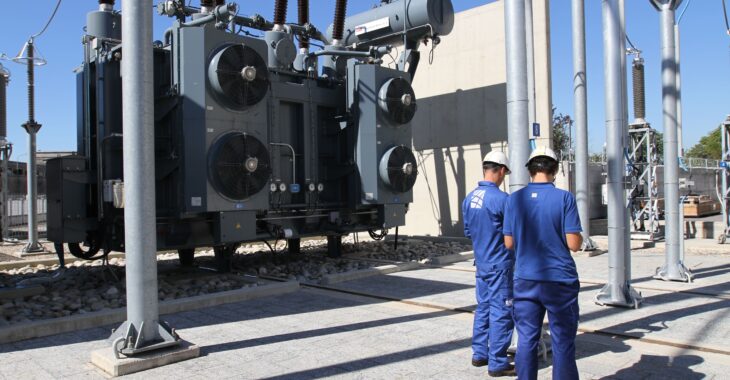Terna, la società che gestisce la rete di trasmissione elettrica nazionale, e CONOU, il Consorzio nazionale per la gestione, raccolta e trattamento degli oli minerali usati, hanno avviato una collaborazione su temi di sostenibilità ambientale ed economia circolare.
Grazie alla firma di un Protocollo d’Intesa, Terna e CONOU si alleano nello sviluppo di un programma d’azione comune per una più efficiente ed efficace modalità di raccolta e trattamento degli oli minerali e sintetici esausti utilizzati nei diversi siti della società elettrica, con l’obiettivo di garantire e favorire il loro recupero da parte di imprese specializzate nel rispetto e a tutela del territorio.
Con questo accordo, coerentemente con i propri obiettivi strategici, Terna rafforza il proprio impegno nello smaltimento dei residui industriali, contribuendo a favorire una ancor più corretta raccolta degli oli minerali e sintetici che vengono usati nelle attività operative di gestione della rete elettrica all’interno delle proprie sedi sul territorio nazionale, agevolandone il ritiro da parte di imprese selezionate e certificate da CONOU.
L’attività del consorzio è subordinata al monitoraggio e all’analisi di Terna che attesterà la recuperabilità degli oli per rigenerazione o altri impieghi, nel rispetto delle normative vigenti in materia di gestione dei rifiuti, e anche grazie a un reciproco e continuo scambio di informazioni e reportistica di dettaglio sui servizi e le quantità di oli trattate.
Già oggi la maggior parte degli oli utilizzati nelle diverse attività di Terna è correttamente trattato e destinato alla rigenerazione: questo accordo consentirà di standardizzare e rendere più omogeneo a livello territoriale il virtuoso processo intrapreso da Terna in questi anni. Tra le azioni di collaborazione previste nell’intesa, Terna e CONOU organizzeranno anche specifici incontri dedicati e momenti di formazione sul territorio in ottica di promozione di una diffusa coscienza ambientale.
La sostenibilità si conferma uno dei pilastri del business di Terna, elemento concreto, condiviso con i territori e centrale all’interno del Piano Industriale 2021-2025: un approccio a tutela dell’ambiente che rappresenta una leva strategica degli investimenti pianificati dall’azienda. In merito all’utilizzo degli oli minerali per usi industriali, nel corso degli ultimi anni Terna ha già programmato e pianificato interventi che prevedono il progressivo impiego di componenti maggiormente ecocompatibili, come macchine più tecnologiche e sostenibili con isolamento a olio vegetale in sostituzione dei trasformatori tradizionali.
Inoltre, in tema di rifiuti, Terna ha già avviato una serie di iniziative di sostenibilità per l’eliminazione della plastica dalle proprie sedi, la raccolta differenziata e lo smaltimento di residui di carta, umido e altri scarti ispirato al modello dell’economia circolare fondato sui principi del riduci-riusa-ricicla.
Terna gestisce attualmente oltre 74.000 km di rete elettrica in alta e altissima tensione, 888 stazioni e 736 trasformatori attraverso 4 centri di controllo sul territorio italiano.
CONOU
Il CONOU è il primo ente ambientale nazionale dedicato alla raccolta differenziata di un rifiuto pericoloso ed è oggi al primo posto in Europa, in rapporto alle rispettive dimensioni dei mercati, per quantitativi di olio usato raccolto e, ancor più, avviati a rigenerazione.
Operativo dal 1984, il consorzio ogni anno raccoglie circa 190.000 tonnellate di oli usati, avviandole per il 99% a Rigenerazione e, in tal modo, riporta a nuova vita circa 130.000 basi lubrificanti che, equivalenti per qualità e prestazioni alle basi di prima raffinazione del petrolio, tornano nel ciclo produttivo.
Un’attività che, da un lato, ha impedito la dispersione (nel terreno, nelle acque dolci o nei mari) di un rifiuto particolarmente persistente e dannoso per l’ambiente, e, dall’altro, ha consentito un risparmio, in questi 37 anni, sulle importazioni di petrolio per il Paese per circa 3 miliardi di euro.
Risultati d’eccellenza raggiunti grazie all’impegno di una filiera che può contare su una rete, diffusa su tutto il territorio nazionale, di 65 aziende di Raccolta, dotate di certificazioni di qualità e ambientali, oltre che di standard di prestazioni comuni e coerenti, e di 3 impianti di Rigenerazione ad alta tecnologia che completano il ciclo convertendo il rifiuto in un nuovo prodotto. La filiera del CONOU svolgerà sempre al meglio il suo ruolo quanto più saprà far partecipi tutte le imprese di questo straordinario percorso di economia circolare.
Environmental sustainability and the circular economy are at the heart of the new agreement: Terna and CONOU join forces for an increasingly efficient management and collection of waste mineral oil; the company that manages the national electricity grid has strengthened its commitment to the processing and recovery of waste mineral and synthetic oil to protect environment and community – Rome, 5 March 2021. Terna, the company that manages the national electricity transmission grid, and CONOU, the National Consortium for the Management, Collection and Processing of Waste Mineral Oils, have started working together on issues regarding environmental sustainability and the circular economy. With a Memorandum of Understanding, Terna and CONOU will develop a shared plan of action for an even more efficient and effective way to collect and regenerate waste mineral and synthetic oils, recovered by the electricity company in different sites, with the goal of guaranteeing and encouraging their collection by CONOU companies specialised in respecting and protecting the environment and the community.
This agreement is in line with Terna’s strategic objectives and has strengthened its commitment to the disposal of industrial waste, helping to encourage an even more efficient collection of mineral and synthetic oils that are utilised in the operational activities of managing the electricity grid within the its locations throughout the country, thus facilitating collection by companies selected and certified by CONOU.
The Consortium’s activity will be monitored and analysed by Terna, which will certify the recoverability of the oils for regeneration or other uses, in compliance with current regulations on waste management, and also thanks to a mutual and continuous exchange of information and detailed reporting on services and quantities of the oils processed. Currently, most of the oils used in Terna’s various activities are already processed and destined for regeneration: this agreement will make it possible to standardise and make the virtuous process undertaken by Terna in recent years more homogeneous at the local level.
Among the collaborative measures provided for in the agreement, Terna and CONOU will also organise specific dedicated meetings and training sessions throughout the country with a view to promoting widespread environmental awareness.
Sustainability is a confirmed pillar of Terna’s business, a concrete element shared with communities and central to the 2021-2025 Industrial Plan: an approach to protecting the environment that represents strategic leverage for the investments planned by the company.
With regard to using mineral oils for industrial uses, in recent years Terna had already planned and scheduled measures that provided for the progressive use of more environmentally friendly components, such as more technological and sustainable machines with vegetable oil insulation to replace traditional transformers.
Furthermore, in terms of waste, Terna has already launched a series of sustainability initiatives to eliminate plastic from its offices, the recycling and disposal of waste paper, wet waste and other waste inspired by the circular economy model based on the principles of reduce-reuse-recycle.
Terna currently manages over 74,000 km of high and extra-high voltage electricity grid and 888 substations and 736 transformers through 4 control centres throughout Italy.
This agreement with Terna confirms the commitment made by CONOU for a widespread and efficient waste management that ranks this business as the best in Europe. CONOU’s priority is to collect “up to the last drop” of waste oil, but it should be of good “quality” to be regenerated. For this reason, some time ago, CONOU launched an integrated communication and awareness-raising programme addressed to the industrial sector, providing companies precise information on all waste management methods, and raising their awareness of the best practices to follow, beginning with storage facilities in accordance with rules/standards and regulations with the absolute prohibition of mixing substances.
CONOU
CONOU is the first Italian environmental body dedicated to the waste collection of hazardous material and is now the number one in Europe, in relation to the respective size of the markets, for quantities of used oil collected.
Operational since 1984, the Consortium collects annually about 190,000 tons of waste oils, sending 99% to regeneration and, in this way, bringing back about 130,000 lubricating base oils to new life; these regenerated base oils are equivalent in quality and performance to the new ones from first refining.
This activity, on the one hand, has prevented the dispersion (in the ground, fresh water, sea or oceans) of a waste product that is particularly persistent and harmful for the environment, and, on the other hand, has allowed for savings on oil imports in the country of about € 3 billion over the past 37 years.
These excellent results have been achieved thanks to the commitment of a network of 65 collecting companies, spread throughout the country, each with quality and environmental certifications, as well as common and consistent high-performance standards. This process is then performed by 3 high-tech regeneration plants that complete the cycle by converting the waste into a new product.
The CONOU circular pattern will further develop to improve and allow the involvement all the waste oil producers and actors in this extraordinary process of circular economy.








